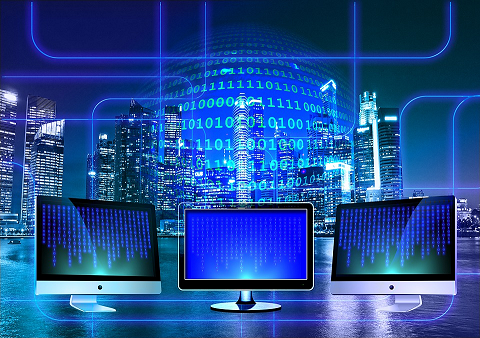Opinion: Here's the truth about stock market volatility that investors don't want to admit

- Computers aren't to blame for dizzying swings -
If you blame computers for the market's recent volatility, it's just blaming the messenger for bearing bad news.
That's because computers are doing what their human programmers have instructed them to do. Computers may be quicker and more efficient than humans, but they only do what they're told. By blaming them, investors avoid focusing on the truth of the matter - and how to handle it properly.
These at least are the conclusions I reached after interviewing Lawrence Tint, chairman of Quantal, a risk-management firm for institutional investors, and until 2000, U.S. CEO of BGI, the organization that created iShares.
Tint says the panicked selling of recent sessions can be explained by investors engaging in what they always do after a long bull market: Unaccustomed to losses, they sell at the first sign of trouble. "I am not aware of anything happening in the market over the last two weeks that wouldn't otherwise be happening even without computers," he said.
To more fully understand Tint's argument, it's helpful to differentiate between three major ways in which computers are being used to execute trades on Wall Street:
1. High-frequency trading: This refers to computers front-running large trades they know are about to be executed. If a computer receives information that a sell order for a large amount of a given stock is about to hit the market, for example, and if it has a super-fast connection to the exchanges, the computer will try to sell first. When the stock subsequently falls as that large sell order hits the market, the computer can cover its short at a lower price.
The typical holding period of one of these trades is less than one second. Tint allows that high-frequency trading could be leading to some increased volatility over the short-term among individual stocks, but not at the level of the overall market.
2. Algorithmic trading: Many commentators incorrectly call any computer trading algorithmic trading, on the theory that computer software contains algorithms. But that is technically incorrect, according to Tint. Algorithmic trading actually refers to computer-executed strategies for buying or selling large blocks of stocks over time in small batches. The incentive to engage in such trading is to minimize the market impact that would otherwise accompany trying to execute a large trade all at once. If algorithmic trading is causing the market to decline, Tint points out, then the blame is on the institution that wants to sell its block rather than the computer that is executing that sale.
3. Computer trading: This refers to using a computer to execute a particular trading strategy. Take momentum, a strategy that has been around for a lot longer than computers; it calls for buying the stocks that have performed the best in the recent past and avoiding those with the worst performance. A computer can process the myriad necessary calculations quickly and efficiently, and then execute the recommended trades, but there's nothing the computer would be doing that a follower of the momentum strategy wouldn't be doing anyway without a computer - except more slowly.
It's this third category of trading that theoretically could have the biggest impact on market volatility, according to Tint, since computers can't exercise any judgment or apply a reality check to the trades that programmers have instructed them to execute. But notice carefully that such trading can't explain recent volatility, since successive big down days where investors piled on the selling had already occurred.
Put simply, investors panicked.
That's what we all need to recognize. The bull market has lured many weak and inexperienced investors who either have never lived through a big market downdraft or whose memories are too short to remember the last one. Blaming computers for investors' panic is pointless.
Dennis Gartman, editor of the institutional advisory service The Gartman Letter, believes there's a psychological motive to blame computers: "It is easy for those who've been long of equities and who are now suffering very real and increasing losses to look for someone or something to blame for their losses." But, Gartman recently told clients, blaming computers "is a way to keep the blame from ourselves; it is a human response but it is wrong."
For more information, including descriptions of the Hulbert Sentiment Indices, go to The Hulbert Financial Digest or email [email protected].
From MarketWatch
